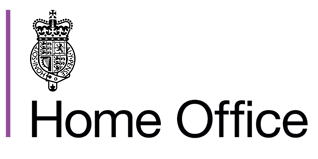HISTORIC PRESS RELEASE : Financing the future – announcement of conclusions of the O’Donnell review of the revenue departments [March 2004]
The press release issued by HM Treasury on 17 March 2004.
The Government has today accepted in full the recommendations of its review of the Revenue Departments, led by Permanent Secretary to the Treasury, Gus O’Donnell. The recommendations, published today, represent an important contribution to the public service reform agenda.
Key recommendations include:
- creation of a new department, integrating HM Customs and Excise and the Inland Revenue, tasked with improving customer services, particularly reducing compliance costs, improving compliance with tax law, and increasing efficiency;
- clearer roles and responsibilities for tax administration within a new accountability framework and annual remit laid down by Ministers; and
- transfer of tax policy functions to the Treasury, to improve the ability of the Government to respond to modern tax challenges and create a greater delivery focus in the new department.
In responding to the review, Gordon Brown, the Chancellor of the Exchequer said:
“HM Customs and Excise and the Inland Revenue can and should be proud of their work, achievements and histories. The changes announced today will modernise the institutions in line with international best practice. They will enable them to use their expertise and experience to deliver better outcomes for the country, particularly improving the service to taxpayers, managing tax revenues, and improved efficiency.”
A NEW TAX DEPARTMENT FOR THE UK
When announcing the terms of reference for the review, the Chancellor paid tribute to the key roles played by Customs and the Revenue in support of the Government’s reforming agenda. This has been further reinforced by the work of the review. But the work has also highlighted the benefits in taking a new approach:
- joining up services to shared customers, particularly businesses. In effect the UK currently has two separate business tax authorities;
- ensuring that effort in enforcing the tax rules reflects risk across the tax base, which will maximise the revenue for public services while reducing compliance costs for honest taxpayers; and
- sharing administrative tasks between the departments to improve efficiency and giving greater opportunity to allocate staff to different areas of work.
Today’s report does not set out a detailed blueprint for change. New services and approaches will be developed by those in the new department in consultation with stakeholders in a long term programme. The changes announced today create the institutional framework for this work and the flexibility to respond to future challenges. The Government will legislate to establish the new department as soon as Parliamentary time allows.
The Chancellor announced that he will advertise this week for an Executive Chairman to run the new department who, pending legislation, will be appointed to both departments.
The review has worked closely with the ongoing Gershon efficiency review. The reforms discussed as part of the efficiency work dovetail with the organisational and information reforms announced today. This integration of HM Customs and Excise and the Inland Revenue along with existing plans and proposed efficiency reforms, could create scope for overall savings equivalent to up to 14,000 jobs by the end of 2007-08. On the basis of policy commitments and existing spend to save packages this would result in a net reduction equivalent to 10,500 posts by 2008.
CLEARER ACCOUNTABILITY
The review has concluded that the new department should be governed by a new accountability framework setting out more clearly the respective roles of Ministers and officials. This will be developed in partnership with the new senior management.
At the same time new accountability arrangements, set out in a framework document, will be introduced. The Chancellor will give an annual remit to the new department outlining its main new and on-going tasks, to be focussed on what should be achieved and why rather than how. The new department will have lead responsibility and accountability for implementation, with clearer and greater discretion to manage itself.
This reflects the general approach of the Government to public service reform:
- clear long term goals, and division of responsibility and accountability;
- flexibility and discretion to develop and implement innovative approaches to delivery;
- devolution or decentralisation of power, with maximum transparency about goals and progress towards achieving them, and subject to scrutiny and accountability.
COORDINATING TAX POLICYMAKING
The report sets out a new division of work on policy between the Treasury and the new organisation. Both departments will continue to work together, ensuring the close links between legislation and delivery that are essential to successful policy, but the Treasury will lead tax policy work and the new organisation will lead on policy maintenance and delivery issues. The main drivers behind this change are:
- to increase capacity in the Treasury for strategic tax policy analysis;
- to improve the linkages between tax and non-tax economic policy making;
- to facilitate coherent policy making across types of tax, for example by introducing a greater focus on particular economic objectives such as productivity or macro economic stability; and
- to give the new organisation a greater operational focus, making it easier for the management to concentrate expertise on delivery challenges.
Over time the new department and the Treasury will work in partnership to examine tax services and law to ensure they reflect and take full advantage of the new customer centred structure.


